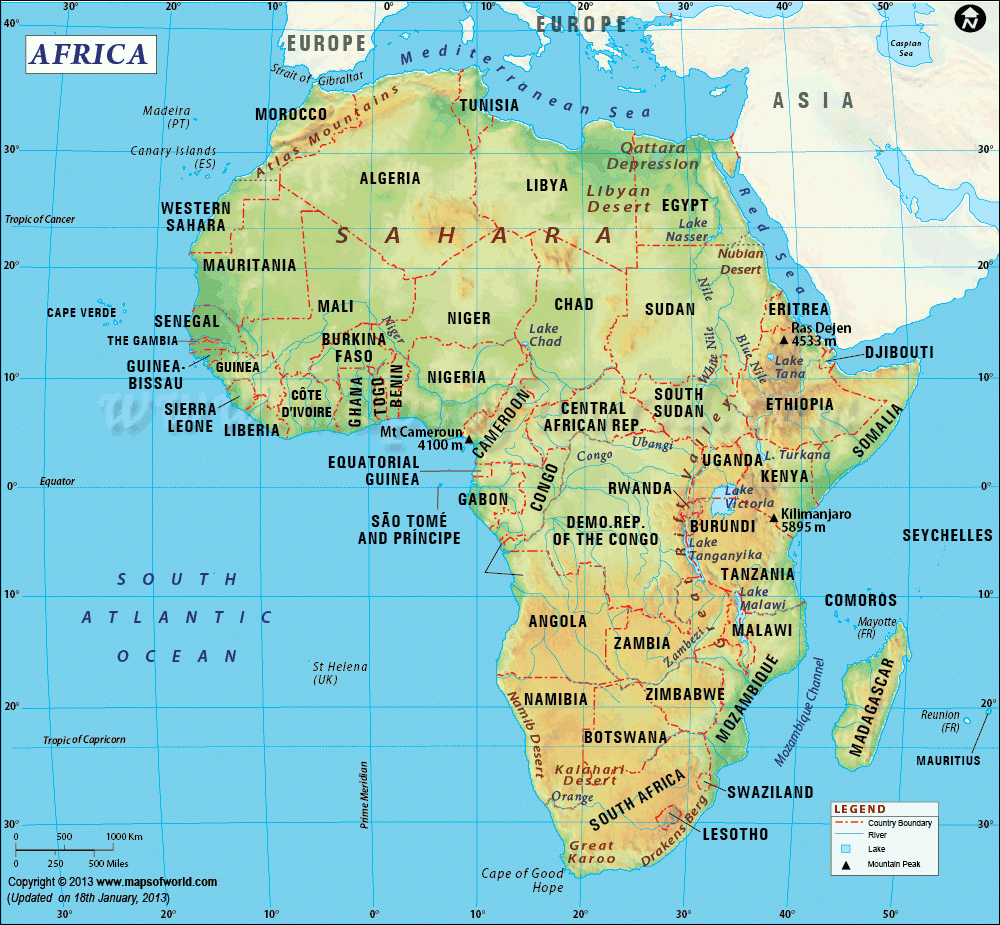
The World Health Organisation (WHO) has lamented the slow progress in tackling Viral Hepatitis B in Africa.
The African region of the UN agency, in a press statement on Friday, said only three countries – Uganda, Rwanda and Cabo Verde – out of the 47 countries in the region are on track to eliminating the disease.
This is the first time the African region of the WHO is examining hepatitis prevalence and responses among its member states.
According to the new scorecard, dying of viral hepatitis in Africa is becoming a bigger threat than dying of AIDS, malaria or tuberculosis.
The disease is said to affect one in 15 people in the WHO African region.
WHO Regional Director for Africa, Matshidiso Moeti, said the analysis is the first to track each country in the region and to assess progress towards the goal of saving the lives of more than two million Africans who may develop progressive hepatitis B or C liver disease in the next decade if countries fail to ramp up their efforts.
The scorecard will be presented at the first African Hepatitis Summit to be held in Kampala, Uganda from June 18 – 20.
The scorecard provides vital information about the status of the regional hepatitis response, measuring progress against the Framework for Action for the Prevention, Care and Treatment of Viral Hepatitis in the African Region (2016–2020).
“It was created as a guide for Member States on the implementation of the Global Health Sector Strategy on Viral Hepatitis, which calls for the elimination of hepatitis by 2030 (defined as a 90 per cent reduction in new cases and 65 per cent reduction in deaths),†it said.
What is Hepatitis?
Hepatitis is the inflammation of liver tissue, commonly caused by virus.
There are five group of Hepatitis A, B, C, D and E. However, the viral hepatitis with leading concerns are B and C.
Viral Hepatitis B and C affects 325 million people globally.
The diseases are also root cause of liver cancer, leading to 1.34 million global deaths every year.
The disease is regarded as a silent killer because while some people do not have symptoms, others develop yellow discolouration of the skin and whiteness of the eyes, poor appetite, vomiting, tiredness, abdominal pain, or diarrhoea.
The most common cause of the diseases are the hepatitis viruses. It can also be caused by the consumption of excessive alcohol, certain medication, infections, and autoimmune disease among others.
WHO scorecard
The analysis from the international health agency shows that 28 countries have developed a national hepatitis strategic plan for viral hepatitis; however, most are still in draft form with only 13 officially published and disseminated.
Nigeria is one of the 13 countries that have officially published and disseminated the plans.
Ms Moeti said WHO has been a major partner in the regional response with policy development and provision of technical and financial support as well as capacity building for a co-ordinated regional response.
“Every year more than 200 000 people in Africa are dying from complications of viral hepatitis B and C-related liver disease, including cirrhosis and liver cancer.
“Sixty million people in the WHO Africa Region were living with chronic hepatitis B infection in 2015. More than 4.8 million of them are children under five years old. A further 10 million are infected with hepatitis C, most likely due to unsafe injection practices within health facilities or by communities.â€
Nigeria’s situation
In Nigeria, there are no official statistics of the total number of people affected by hepatitis B and C.
However, WHO said Nigeria has a high burden of viral hepatitis B and C at prevalence rate of 11.2 per cent and 2.0 per cent respectively.
A major cause of the spread of the disease in Nigeria stems from lack of knowledge about the disease, poor health seeking behaviour as most Nigerians do not do medical checks, delivering babies at home and circumcision by unqualified hands, among others.
Hepatitis is a communicable disease but can be vaccine prevented. In Nigeria, the vaccine has been included as part of the immunisation schedule for children. (National Programme on Immunisation (NPI), since 2004.
Unfortunately, most children still miss out on the vaccination due to low immunisation coverage. Most adults are also unaware that they can be vaccinated. In cases where the adults are aware, the cost of vaccination is high, thereby discouraging most people.
Another challenge is that the vaccines are only available for adults in some secondary and tertiary health facilities. This means most of the people in the rural areas cannot benefit from it.
Progress in Africa
WHO said only 15 per cent (7/47) countries are leading prevention efforts with national coverage of both Hepatitis B birth dose and childhood pentavalent vaccination exceeding 90 per cent.
The agency said there are major gaps in hepatitis testing and treatment with less than eight countries providing subsidised testing and treatment for viral hepatitis.
“Uganda has started free nationwide hepatitis B treatment, and Rwanda is providing free treatment for both hepatitis B and C.
“These two countries are championing the regional response and are on track to reach the 2020 Framework targets for testing and community awareness,†it said.
The scorecard showed that the administration of the hepatitis B vaccination at birth and in early infancy is the most effective way to halt the transmission of the virus. This is because 95 per cent of the burden of chronic diseases is due to infections among children acquired before their fifth birthday, including mother-to-child transmission.
Ms Moeti said in spite of the low cost of birth dose vaccination – less than US$ 0.20 per child – only 11 countries in the region are following this protocol.
“One such country is Cabo Verde where the government has mobilised financial resources and has achieved 99 per cent vaccination coverage at birth.
What Uganda is doing
WHO said in Uganda, more than 6 per cent of the population are infected.
It said the commitment to end hepatitis infection was driven by civil society and strong political will with the result that it became one of the first African nations to fund domestic action against hepatitis B.
Uganda invested around US$ 3 million to embark on a massive, free hepatitis B screening programme in 2015, in which more than four million people have been screened.
There was also a widespread community mobilization and awareness-raising actions.
Ms Moeti said more than 30 per cent of the population who are infected with hepatitis B are now aware of their status and can access comprehensive treatment services, including free medication.
“This performance exceeds the 2020 target for screening and awareness. There however remains much to be done to reach treatment targets.
“It is fitting that the first African Hepatitis Summit should be held in Uganda,†Ms Moeti said.
“The country has superb lessons to share, and we support these important exchanges as they are helping to build evidence-based policies and promoting partnerships for more concerted action against viral hepatitis across the region. They are showing us that beating this disease is achievable.â€
SHARE THIS PAGE WITH OTHERS
Categories: Latest News big sister naija
Updated May 24 2023 08:05 pm
big sister naija
Updated May 24 2023 08:05 pm
 REALITY TV SHOW REQUIREMENTS FOR (BSN)
Updated May 24 2023 08:05 pm
REALITY TV SHOW REQUIREMENTS FOR (BSN)
Updated May 24 2023 08:05 pm
 YOUR DREAM REALITY TV SHOW
Updated May 24 2023 08:05 pm
YOUR DREAM REALITY TV SHOW
Updated May 24 2023 08:05 pm
 A CLUE OR BLUEPRINT FOR REALITY TV SHOW CONTESTANTS
Updated May 24 2023 08:05 pm
A CLUE OR BLUEPRINT FOR REALITY TV SHOW CONTESTANTS
Updated May 24 2023 08:05 pm
 REQUIREMENT FOR REALITY TV SHOW (BSN)
Updated May 24 2023 08:05 pm
REQUIREMENT FOR REALITY TV SHOW (BSN)
Updated May 24 2023 08:05 pm
 BREAKING NEWS on BSN
Updated May 24 2023 08:05 pm
BREAKING NEWS on BSN
Updated May 24 2023 08:05 pm
 modeling is fast rising work in Nigeria
Updated May 24 2023 06:05 pm
modeling is fast rising work in Nigeria
Updated May 24 2023 06:05 pm
 follow our instagram handle at bsnaijaofficial and like any of BIG SISTER NAIJA contestants which you will like to appear in the house
Updated Aug 01 2021 04:08 pm
follow our instagram handle at bsnaijaofficial and like any of BIG SISTER NAIJA contestants which you will like to appear in the house
Updated Aug 01 2021 04:08 pm
 Fraudster disguises as airman, to claim slain officer’s benefits
Updated Jun 07 2020 12:06 am
Fraudster disguises as airman, to claim slain officer’s benefits
Updated Jun 07 2020 12:06 am
 SDGs office denies inserting N33bn allocation in budget
Updated Jun 07 2020 12:06 am
SDGs office denies inserting N33bn allocation in budget
Updated Jun 07 2020 12:06 am